
Shockwaves continue to reverberate in English football after Arsenal outbid Manchester City to make Declan Rice their £100m first-timer, but for those keeping a close eye, should this be a big surprise?
It has been nearly 17 years since an American billionaire named Stan Kroenke jumped into a London cab with corporate lawyer Tim Lewis to meet with ITV officials and spend £42.3m to buy a 9.99% stake in Arsenal.
Every move — and sometimes bluff — since then has combined patience with dead eyes and sometimes urgency to achieve two unmistakable goals .
The first was to add Arsenal to the $15 billion sports empire that is now the largest and most profitable in the world. Secondly, to create a club that will regularly compete for the biggest trophies in football.
There have been various rumors at various times, but having broken the British transfer record and determined to capitalize on last season's progress, the Kronke family are now clearly feeling pretty good about the prospect of adding a golden streak of success on the pitch.
The Los Angeles Rams, Colorado Avalanche, and Colorado Mammoth respectively won the NFL Super Bowl, the Stanley Cup of Hockey, and the Lacrosse Cup last year, while the Denver Nuggets became NBA basketball champions for the first time in their history. The Enke era is actually best seen in two separate phases.
Arsenal's season-to-season finishing positions and trophies won
There was a period until August 2018, which also coincided with Arsene Wenger's last decade at the club, when Uzbek-Russian oligarch Alisher Usmanov increased his rival stake to 30 percent and was desperate to buy out Kroenke. It is argued that if Kroenke then invested in refinancing large historical debts and dramatically increased spending on transfers, which he has since done, one big indirect consequence would eventually be to enrich Usmanov further.
So the second phase is the last five years, which began when Usmanov finally conceded defeat and sold his shares to Kroenke for £550m. «My family really took ownership of the club in 2018,» says Stan's son Josh, despite the fact that they've had a majority stake since 2011.
«I think he [Stan] was in a different mood to take 100 percent control,» agrees Lewis, whose role also evolved from legal counsel to Kroenke between 2007 and 2020 to executive vice chairman. chairman of the club and a key practical influence as owner. reliable London help.
Decisions on Arsenal's three official bids for Rice, for example, were ultimately only approved by Kroenke last month after Lewis accepted the recommendation after discussions with senior football personnel, notably manager Mikel Arteta and sporting director Edu.
“My role is not to give football advice, but to support and challenge,” says Lewis. “They should be able to explain so I can understand and inform Stan and Josh to support the recommendation. The brain needs to be adjusted. Stan and Josh want more information. Then they can decide. Trust is a short word. If you're a multi-billionaire, that's a big word.»
Lewis has never been interviewed by the media before, and while he remembers very well the challenges he faces and the ever-volatile nature of football, he says he «would really like people to realize what a fantastic ownership we have.»
So, what could that mean in practice?
Consistency may have been the main distinguishing feature, both in mindset and in the staff around them. The Kroenke have never sold shares in their sports teams since they first bought a stake in the St. Louis Rams almost 30 years ago. The main mantra is to make long-term decisions that do not interfere much with the hectic external noise.
All this means that they can appear passive or aloof if they think it's best not to react to an event, but they are also strikingly brave at other times. Such decisive action in the transfer market at this moment of power seems like one of those calculations.
“Some people mistake Stan’s calm nature for a lack of interest – he’s willing to ask tough questions but knows when to stay in the background,” Kevin Demoff, then chief operating officer of the St. Louis Rams, told me during a visit to the United States to interview Kroenke in 2011.
 Josh Kronke celebrating Los Angeles Rams victory' Winning the Super Bowl. Credit & Copyright: Getty Images/Kevin C. Cox
Josh Kronke celebrating Los Angeles Rams victory' Winning the Super Bowl. Credit & Copyright: Getty Images/Kevin C. Cox
Twelve years later, Demoff's description of his boss has hardly changed, although he is now the president of what has become the Los Angeles Rams and is based about 2,000 miles from St. Louis at the new $5 billion Kroenke SoFi Stadium in California. The move itself was highly controversial, but the venue, which has already hosted the Super Cup and, in addition to Arsenal's pre-season friendly against Barcelona next Thursday, will host matches for the 2026 World Cup and the opening and closing ceremonies of the 2028 Olympics.
«Having the patience and fortitude to get through the ups and downs for a strategy you believe in is paramount,» Demoff said on this week.
Other memories of that 2011 trip include how Kroenke rather dispelled the Silent Stan caricature by watching the Rams from his private box, and the then 31-year-old Josh prophetically laid out his excitement about possibly joining Arsenal. Now co-chairman, Josh has been a notable presence this week with Arteta and the players during Arsenal's US pre-season tour and is almost constantly in touch with key players at the club.
 Josh Kroenke (right) meets newcomers Declan Rice (left) and Urrien Timber during Arsenal's US tour. Photo: Getty Images/Stuart MacFarlane
Josh Kroenke (right) meets newcomers Declan Rice (left) and Urrien Timber during Arsenal's US tour. Photo: Getty Images/Stuart MacFarlane
Lewis, like Demoff, has seen most of Kroenke Sr.'s sides, initially as an advisor during the 11-year takeover battle with Usmanov, which became one of the longest poker matches in history.
Rather than also buy David Dein's stake back in 2007, which would have antagonized the Arsenal directors, Kroenke instead forged internal relationships, accepting a board seat in 2008 before becoming Danny Faye's choice. Schman, Lady Bracewell-Smith and Peter Hill-Wood on their family shares three years later.
“A lot of the job of taking over state-owned enterprises requires pace, efficiency, and speed,” says Lewis. “But Stan really taught me the value of just watching sometimes. In the right circumstances, this can be very powerful. He has incredible patience. He has a phenomenal memory and a clear idea of what he needs to focus on.”
If the takeover battle with Usmanov required endurance, then in the summer of 2020, when the Covid pandemic shut down the world, urgent action was required.
“Check. Bullet. £236 million… quite a large sum,” says Lewis, demonstrating not only the speed with which Kroenke dealt with the problem, but also the seriousness threat faced by Arsenal.
Football clubs stopped playing in front of fans, and Arsenal were still paying off a 25-year loan they took out in 2006 to build a home for the club in the Emirates.
“The covenants of the bond were tested at certain points,” says Lewis. “If you broke them badly enough, the bondholders took control of the club. Due to the pandemic, the club was most likely going to break them so much.
“In the ordinary world, you see this happening, but we were not in the ordinary world. We had to pay, and we had very little time during a period when so many people were insecure. Stan knew what needed to be done and he was ready and able to do it.”
Arsenal finish season after season and win trophies Arsenal continue season after season after the departure of Alisher Usmanov
Covid has also been the catalyst for highly unpopular layoff programs. Then in 2021, Arsenal dropped out of Europe for the first time in almost 30 years, but there have been bigger changes. Vinay Venkatesham became the chief executive. The head of the football department, Raul Sanlei, left a few weeks later after Lewis took on an active domestic role. A number of transfer rules and parameters have been set, especially with regard to the age profile of new players, which has changed again this summer with the purchase of still young but established internationals such as Rice, Kai Havertz and Jurrien Timber. Returning to the top table of English football, Arsenal are thinking hard about how to stay there.
“Of course we were all very disappointed last season, even if logically we weren't all that surprised,” says Lewis. “We knew where we were in depth. It was still fantastic. The trick now is to have a good enough summer to achieve more. We will be in the Champions League. We need some of that experience on the team. We need more depth. But you also can't do too much. We have a line-up and a team with balance, life and culture. You want to improve it, not jeopardize it.»
Talks of culture now also regularly cross the boundaries of the first team, and while Arteta noted that the «soul of the club was lost» prior to his appointment in 2019, a deep review was commissioned, culminating in new values and goals. The emphasis is on living them daily, but they were summed up on one page, and the modern version of the club's old motto «winning through harmony» is: «Act for the winning team, culture and community.»
Crucially, Arsenal had opened up to the outside world, and with the league's youngest team and coach at Arteta with a personality to connect with, a recognizable story and outward confidence snowballed. Match day fans have been energized and generally rejuvenated as well following changes to the ticketing system, notably the «use it or lose it» rule, which means season ticket holders can no longer buy seats for men's games and then regularly leave them empty. Other, more subtle things have been done, such as engaging more closely with club legends and the local community.
“Basically, it was about being brave enough to communicate,” says Lewis, who emphasizes that he is just as likely to talk to Kronke about some kind of cultural decision as he is about those that require a big check.
 The mood around Arsenal and London's Colny has improved under Mikel Arteta. Credit: USA Today/Jeff Burke
The mood around Arsenal and London's Colny has improved under Mikel Arteta. Credit: USA Today/Jeff Burke
The physical changes include the transformation of London's Colney's training ground and the redesign of the stadium, where the club's history and, in particular, Wenger's accomplishments scream from the walls. Kroenke flew in from the US specifically for Arsenal's Boxing Day game against West Ham last year to see Wenger in person on his first visit to the Emirates since 2018.
“It was great to take Arsene to the dressing room,” says Lewis. «Bukayo [Saka] didn't know him, but he called him 'boss' right away. He asked, «Boss, how can I improve?» Arsen said very dryly, «I think you could use your right foot more.»
On the eve of the 20th anniversary of the Invincibles season, Arsenal are ready to unveil a monument to their former coach. “We live Arsene's legacy every day,” says Lewis. “He got through this period when you didn't have a single owner to support, control and invest. He kept the club as high in the table as he could. What he achieved was wonderful.»
Arteta was one of Wenger's best late captains, but it's hardly a risky managerial appointment, and there are parallels in Kronke's organization with Sean McVeigh, the 37-year-old head coach of the Los Angeles Rams. McVeigh has already won the Super Bowl twice since his appointment in 2017. Arteta visited McVeigh in Los Angeles during the World Cup break last season, and McVeigh spent time at Arsenal's training facility in Colney after the end of the NFL season this year. Arsenal will also train at the Los Angeles Rams in California next week as part of their pre-season tour. «Sean and Mikel have a great relationship and have a very similar pedigree,» says Demoff, president of the Rams.
“These teams don't work in a vacuum. There is this network of support and a common thread: a team built around a talented head coach, many of whom have not had opportunities before. Then a patient, methodical build to get to the point where the teams are ready to fight for the championship. Then we persistently try to understand how you can become better.
“Stan and Josh really know how to identify great leaders. Sometimes they may not be obvious at the time, but they have a vision of what these people can become.” Lewis says that Josh and Stan Kroenke are astute operators and able to spot talent easily. Photo: Getty Images/Kevin Dietsch
Indeed, it's easy to forget even last year's debate over Arteta's contract renewal after Arsenal lost three games in a row and were poised to miss out on the Champions League again.
«We didn't think he had a contract that reflected his contribution or position in the market, and we wanted to get ahead of the curve,» explains Lewis.
“We also knew we had a very talented guy on our hands. I think we all see it.» And what is it'? “Hmmm… genius? May be. Incredibly passionate, intelligent, purposeful and inventive. This is a relationship. It is important to know that those around you support you. Mikel wants to win. And he wants to win here.”
These sentiments, and the impact of Kroenke's faith at a time when some owners were hesitant, definitely felt relevant last month when Arteta was asked about Paris Saint-Germain's interest. «I'm happy at Arsenal,» he said. “I feel loved and appreciated. I have a lot to do for this club.”
With more than £200m already spent on new players this summer, the sense of momentum continues even after they stumble in the final of an exciting Premier League title race.
 Tim Lewis (left) and Josh Kronke at Manchester City in April. Photo: Getty Images/Robbie Jay Barratt
Tim Lewis (left) and Josh Kronke at Manchester City in April. Photo: Getty Images/Robbie Jay Barratt
The contrast with Josh Kroenke's appearance in an Amazon docu-series after the failed European Super League bid two years ago seems overwhelming. “We upset a lot of people and it stinks,” he admitted. «I understand that we have a long way to go to restore the trust of our fans.»
Clive Palmer, host of the Arsenal Vision podcast, says it's been a feature in the sand. “They came in with a blank sheet of paper, did their due diligence and listened,” he says. “I can't believe the whole atmosphere has changed. I look at overall consistency, how people are supported and oversight, and I don't see any gaps.»
One of the critical voices was the Arsenal Fan Trust, a group that owned the shares until the takeover in 2018 and always insisted on multiple ownership. He is now represented on the club's new «advisory board» set up in November 2021.
«You can't be an Arsenal fan at the moment and not be happy and excited,» says Akhil Vyas, board member of AST. “We are competing. We are back in Europe. We broke the British transfer record. You have to give them credit, but I think people will always keep a close eye on things like debt and the Super League. Our role is to keep an eye on the bigger picture.”
Others argue that the Kroenke Out campaign has always been misguided and point to a likely mess if Usmanov, who was sanctioned after the Russian invasion of Ukraine last year, won the takeover battle.
 Many Arsenal fans will feel like they managed to dodge a bullet when Alisher Usmanov fell out of sight. Photo: EPA/Yuri Kochetkov
Many Arsenal fans will feel like they managed to dodge a bullet when Alisher Usmanov fell out of sight. Photo: EPA/Yuri Kochetkov
Palmer believes the tone was set with Kroenke's first share purchase in 2007, when Hill-Wood, chairman from 1982 to 2013, famously said «we don't need them» at the club. It should be noted that Hill-Wood was one of the first to change his mind. “Sometimes it's how you walk in the door,” says Palmer. “Immediately the question arose: “Who are these annoying foreigners trying to get close to our club?” Then we entered the era of dual ownership. The club was determined by divisions. He waited for the other to disappear. The team was bloated and overpaid; he now has the youngest average age. Every player has a contract and we have a window of four or five years ahead of us. It's a genius plan and the fans see it.»
Thomas Ballegaard, another member of the advisory board and president of the Arsenal Danish supporters' club since 1999, believes that much of the initial «misunderstanding» of the owners' intentions is now fading. “We had a professor running the show at the head of our club, so Kroenke could stand a little back and watch,” he says. “When changes were needed, now we see them intervene. People see that they are here for a long time, that they will keep traditions and build ambitious plans. Sports are their main occupation. They don't play sports here.»
So, after the protests that started the 2022 Amazon documentary series, how would Cronck be treated today if they walked down Holloway Road before the match?
«I don't think they would have been hugged, kissed, chanted or anything like that, but they certainly wouldn't have received ill will,» says Vyas. “I think it would be a case of, ‘Perhaps you have turned the corner. Continue. Keep investing in Arsenal. All fans want to be successful, and if we are successful, love is everywhere.”







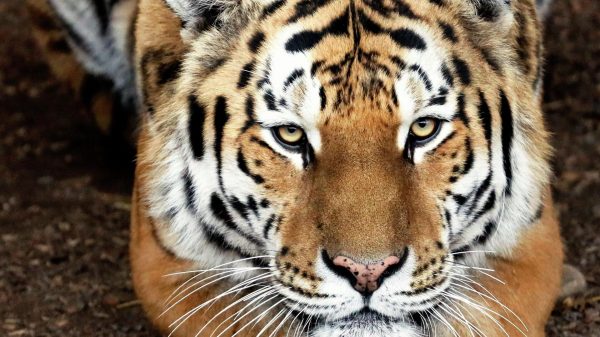
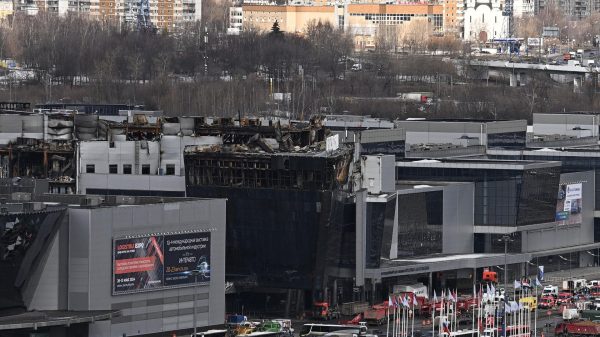









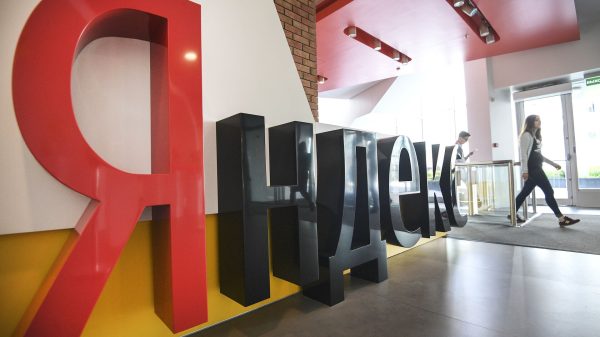
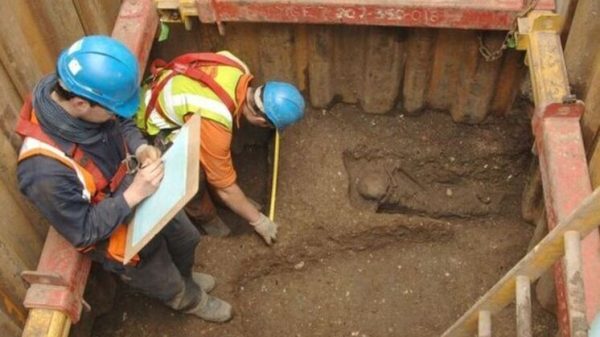
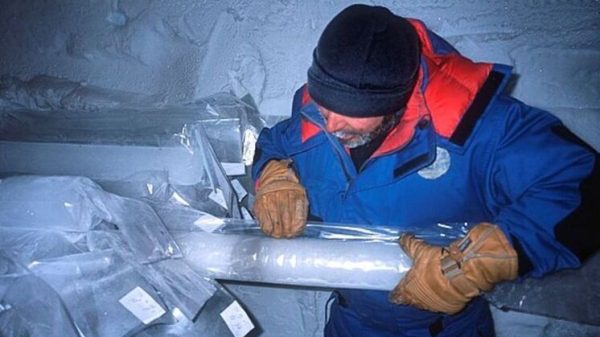













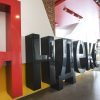

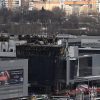
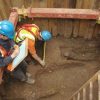
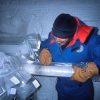












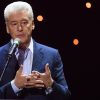




Свежие комментарии